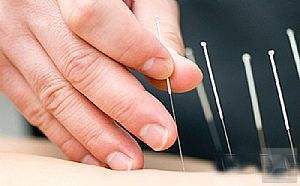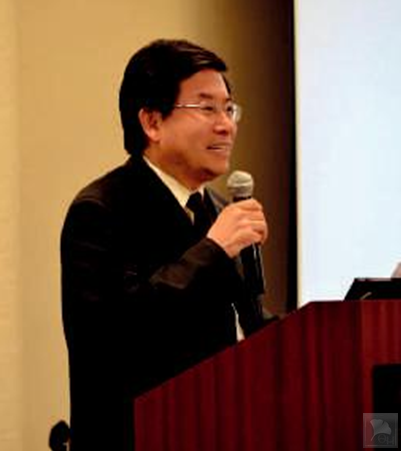注册或者登录即代表同意
《版权声明》《使用条款》《软件使用协议》
Registering or logging in means you
have read and agree to the
《Copyright》《Terms and Conditions》《Software Use Agreement》

Who has the legal right to practice acupuncture? After years of debate, discussion, compromise and completing the laborious bureaucratic processes involved in defining adequate curriculum and educational requirements, interested parties created a credentialed pathway to becoming a licensed acupuncturist with the legal right to assess, diagnose and treat patients. Today, the majority of legal issues regarding acupuncture have to do with those who bypass this process and practice needling techniques without having met the educational standards or having completed the clinical hours required of licensed acupuncturists. Unfortunately, the general public is often aware of the great discrepancies in level of care between a licensed acupuncturist and other practitioners who claim they practice acupuncture. Evidenced by the low premiums for malpractice insurance, legal issues generally do not involve patient care from licensed acupuncturists; rather, legal cases generally revolve around disputes regarding licensure. Who has the legal right to practice acupuncture is likely to be an on-going debate as acupuncture becomes more widely recognized as an invaluable form of treatment for many conditions not effectively treated by other means. To provide an overview of the debate, many of the most relevant cases are covered in this article.
1. Andrews v. Ballard (1980)
Plaintiff: Andrews and 46 Texas residents seeking acupuncture care
Defendant: Ballard
Complaint: Articles and rules limiting the practice of acupuncture to licensed medical physicians violated the constitutional rights of individuals
This ground-breaking case contributed to establishing a precedent that formally protects the practice of acupuncture from being restricted by powerful medical boards. The plaintiffs, Andrews and 46 Texas residents seeking acupuncture care, contended that articles and rules limiting the practice of acupuncture to licensed medical physicians violated the constitutional rights of individuals. Specifically, the Texas Medical Practice Act, Articles 4510, 4510a, 4510b, and 4505(12) and (15), Tex.Rev.Civ.Stat.Ann. arts. 4495-4512, and Texas State Medical Board Rules 386.01.12.001-.002 were in question. The plaintiffs asserted that the Due Process Clause of the Fourteenth Amendment protects a patient's right to accept or reject medical care. Therefore, they argued that Articles 4510, 4510a, 4510b, and 4505(12) and (15) and Rules 386.01.12.001-.002 deprive individuals of this constitutional right by disallowing acupuncturists to provide care. Additionally, the plaintiffs claimed that the rules and articles mentioned do not serve to protect the health and/or safety of the patient.
A briefing was held from August 20, 1979, through August 27, 1979; upon reviewable of the briefs, facts and the law, The Court found the articles lacking in constitutional basis. Furthermore, The Court affirmed that within the patient's right of privacy, individuals are free to choose acupuncture treatment. The Court agreed with the plaintiffs, in that articles and rules contended, therefore, deny patients this constitutional right and also are not deemed essential to fulfill the role of the State of Texas in safe-guarding the health and well-being of the patient. In accordance with these finding, regarding the practice of acupuncture, Texas Medical Practice Act Articles 4510, 4510a, 4510b, and 4505(12) and (15) and Tex.Rev.Civ.Stat. Ann. Arts. 4495-4512, and Texas State Board of Medical Examiners Rules 386.01.12.001-.002 were ruled unconstitutional. The judgment was decreed in favor of the plaintiffs.
This ruling validated the practice of acupuncture by licensed acupuncturists and prevented a western medical board from being able to control the practice of acupuncture. The decision further verified the difference between acupuncture techniques as practiced by western physicians from the practice of acupuncture by licensed acupuncturists. As the general public is still not clear on the vast difference between the scope of knowledge, education and conditions treated by licensed acupuncturists; the fact that The Court recognized the difference in level of care provided by licensed acupuncturists compared to the care provided by those who practice needling techniques, assures that discerning minds are capable of understanding the crucial differences and may further the practice of acupuncture by bringing greater awareness to the massive benefits that the full practice of acupuncture and oriental medicine bring to the practice of medicine.
2. Dr. Per Otte v. Arkansas State Board of Acupuncture (2005)
Plaintiff: Dr. Per Otte
Defendant: Arkansas State Board of Acupuncture
Complaint: Practicing without License

In March of 2005, Dr. Per Otte, filed an appeal against the judgment of the Garland County Circuit Court which supported the Arkansas State Board of Acupuncture and Related Techniques. The Board held that Otte is not licensed to practice acupuncture in Arkansas and cannot apply for licensure until he takes the Board Exam.
To review the history of the situation, in November of 1995, Otte relocated to Hot Springs Village and started a specialty acupuncture practice treating eye diseases. In 1997, the Arkansas Acupuncture Practices Act, Ark. Code Ann. § 17-102-101 et seq. (Repl.2002), was put in place. In response, Otte attained a provisional license in October 1997. The question of whether that license was valid remains; however, according to the code, Ann. § 17-102-302 (Repl.2002), all provisional licenses in the state expired on August 1, 1999.
Neglectfully, the Board granted Otte a provisional license in 2000 without a quorum. The Board allowed Otte to practice in the state until March of 2001, so long as he took the NCCAOM Board Exam. Otte failed to take the Board Exam in March; and in May of 2001, he was given permission to take the Exam in July 2001; however, he did not take the Exam at that time either.
This might sound baffling to anyone who has not dealt with the continually changing requirements and complicated bureaucratic process of acupuncture licensure. The reasons Otte did not take the required Exam are complicated. NCCAOM denied him permission to take the Exam on the basis that they had requested more affidavits, which Otte could not get to the Board prior to the deadline for the March 2001 exam. Additionally, there was complaint against Otte under review by the NCCAOM Board. To make matters worse, the process that allowed Otte to take the Exam was discontinued January 1, 2001.
In September, 2001, even though the Board had mistakenly authorized Otte to practice, having granted a provisional license without a quorum of members present at the meeting, they ruled that Otte's license had expired. Otte filed a petition for review, due to the fact that Otte was not aware of the meeting in September 12th meeting; the Board was required to hold a hearing, in which the Board deemed that Otte did not have a valid license. Otte filed an appeal in response; as, under the Administrative Procedure Act, a governing body's decision may be reversed if the rights of the petitioner have been prejudiced due to acts by the agency that are unconstitutional or outside of statutory restrictions, beyond the agency's domain, unlawful, in error, unsubstantiated, arbitrary or demonstrate an abuse of power.
Much of Otte's trouble in attaining a license had to do with his qualifications to sit for the NCCAOM Board Exam and the changing laws at the time that he was seeking licensure. According to Ark. Code Ann. § 17-102-304, 305, and 307, applicants must pass a Board Exam. Section 17-102-206(b)(7) allows the Board to accept the exam given by the NCCAOM. Otte was under the impression, that because, he could not qualify to sit for the NCCAOM Exam, the Acupuncture Board was responsible for giving him an Exam that measured competency in his specific area of expertise. Otte also felt the Board, in focusing on determining the status of his license, was acting beyond the Act's statutory provisions.
As the Board cannot provide individualized Board Exams for every candidate who might prefer that option over taking the full NCCAOM exam, the Board decided that giving Otte his own Board Exam was not feasible. The Board also decided that Otte should not have been issued a provisional license. The Court upheld the decision of the Board, stating that specialized Boards know more about the details under their own domain, Arkansas Dep't of Human Servs. v. Thompson, 331 Ark. 181, 959 S.W.2d 46 (1998). The Board claimed it was Otte's responsibility to meet the requirements, namely, passing the NCCAOM Board Exam. Regardless of the extenuating circumstances, he did not; therefore, his license was declared invalid.
Otte also argued that the State of Texas may choose either to regulate acupuncture or not; however, it cannot “unnecessarily render acupuncture treatment essentially unavailable,” Andrews v. Ballard, 498 F. Supp. 1038 (S.D.Tex.1980). As Otte specializes in macular degeneration, by disallowing Otte to practice, the state is making acupuncture unavailable to these kinds of patients. The court ruled that Texas law does not apply in Arkansas; and that, because this point was not raised before, he could not raise it now; Brown v. Dep't of Human Servs., 330 Ark. 764, 956 S.W.2d 866 (1997).
Still, Otte wanted the Board to be prevented from deciding whether his license was valid, due to the fact that they are the ones who granted it to him, without informing him that it was provisional; and this limitation was not on the license itself. As he thought his license was good, he built his practice in Arkansas and did not renew his Texas license. This point was also inadmissible because it had not been raised before.
The circuit court, in the end decided that the trial court was correct in supporting the decision of the Acupuncture Board.
To be continued...
ABOUT THE AUTHOR

Gong Changzhen, received his M.A. and PhD. from the University of Minnesota and his B.S. and M.S. from Shandong University, China. He is the president of the American Academy of Acupuncture and Oriental Medicine and executive director of TCM Health Center. He has served as the chairman of the Continuing Education Committee of the Minnesota Acupuncture Association. He currently serves as a director of Chinese Medicine Translation Committee of the World Federation of Chinese Medicine Societies; Chief Translator of World Chinese Medicine Core Course Textbooks Organized by China Chinese Medicine Press; Senior Special Advisor to the China-US Acupuncture Rehabilitation Center at Wenzhou Medical University; Vice President of the Special Diagnosis and Treatment Techniques Committee of the World Federation of Chinese Medicine Societies. Dr. Gong also serves as an editorial board of Acupuncture Research, published in Beijing, as well as being an associate Editor-in-Chief of the International Journal of Clinical Acupuncture, published in New York.
E-mail: tcmhealth@aol.com
当前客服:小岐
QH岐黄网客服系统
发送内容不能为空
Comments(0)